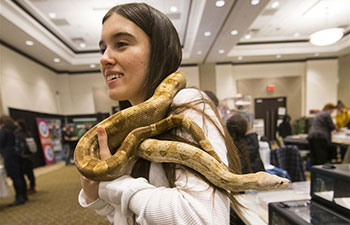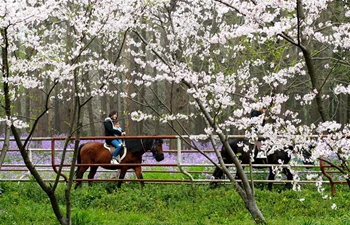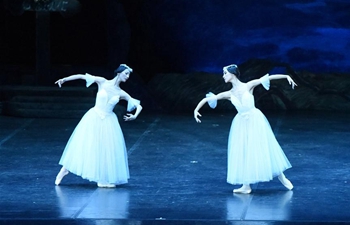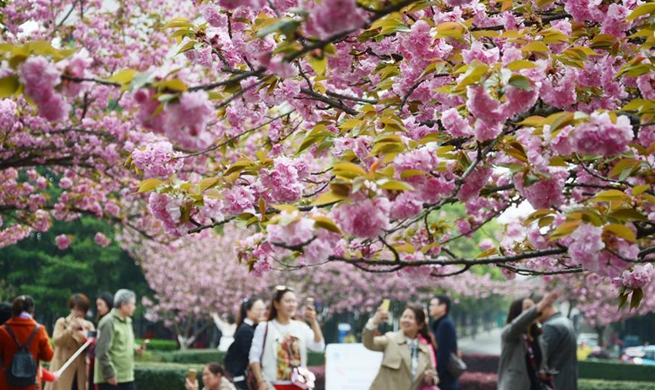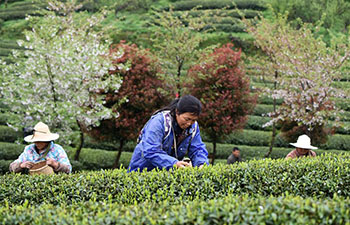NANJING, March 31 (Xinhua) -- Colorful rooms, toys and imaginative cartoon pictures present a lively atmosphere at the Rainbow Home in Nanjing, capital of eastern China's Jiangsu Province.
Children and care givers here fight diseases and face death all the time.
Xiao Jing is a one-year-old boy with a variety of serious diseases such as subdural effusion, hydrocephalus and encephalomalacia. Several times a day, he has to struggle against torturous hyperspasmia.
Besides giving Xiao Jing routine medication, the hospice staff often holds him in their arms and whisper his name gently, trying to pacify him.
"We usually adopt hospice nursing to ease their pain and make them as comfortable as possible because death may approach any time," said Huang Fang, co-founder of Rainbow Home, a non-profit organization established in 2014.
Most of the children in the hospice are under the age of 10. Xiao Jing is the youngest.
Most of the children at the Rainbow Home have been abandoned by their parents, as they were born with incurable diseases such as heart defects, hydrocephalus and biliary atresia. They have to lie in bed most of the time and take medicine regularly.
Huang said when children do not know how to express their pains and fears, they are likely to cry or scream out.
"It's not easy to take care of these terminally sick children. Although most volunteers have compassion for the work initially, they are nervous and afraid to stand close to them, not to mention to nurse them," she said.
Huang has continually sought support from neighboring communities, training volunteers in hospice techniques and nursing.
The local government has provided the land and infrastructure for the Rainbow Home for free. Each child in the hospice is entitled to a monthly subsidy of 2,020 yuan (about 300 U.S. dollars). It also receives donations.
"Five years ago, we only had three beds, now the number has increased to 38. For the past five years, about 70 abandoned children have been looked after by our staff. Some of them passed away, while some children had their lives prolonged because of our care," Huang said.
Every time a child is dying, the hospice staff play soothing music and hold the child in their arms or hold their hands.
"To avoid influencing the child's mood, the hospice staff is asked to control their own sad emotions. But sometimes it's really hard," Huang said.
Guo Zhanmin, a former member of the hospice staff at Rainbow Home since 2015, quit in 2017 when she became a preschool teacher.
"The first girl I cared for at Rainbow Home was very cute and clever. We got along so well. I still can't bear that she passed away," Guo said.
Miracle does happen at the hospice sometimes.
Xiao Yu is a five-year-old child suffering from a brain tumor. She did not get better after several rounds of craniotomies, and medical doctors said she is too young to sustain more surgeries. But to their astonishment, the girl's tumor has been getting smaller without medical intervention over the past few years at the hospice.
Death is difficult for everyone and perhaps even more so for children and adolescents who may not understand what is happening or why changes are occurring. Sometimes, excessive medical treatments are likely to increase suffering, said Zhou Ning, director of pain management at a local hospital.
She said the hospice has accumulated experience in relieving children's pain, which is worth sharing in public hospitals.
"We plan to cooperate with some hospitals in Nanjing to jointly establish children's hospice care wards. In the future, we are going to explore the cooperation with community hospitals so as to let children's hospice care serve more seriously ill children and their families," Huang said.





